OEM solar lights with Bluetooth control | Quenenglighting Expert Guide
Revolutionizing Solar Lighting: The Power of Bluetooth Control for OEM Solutions
As the demand for sustainable and intelligent infrastructure grows, OEM solar lights with Bluetooth control are becoming a pivotal choice for professional buyers. Whether you're a distributor, contractor, or project developer, understanding the nuances of these advanced systems is crucial for successful re-procurement and deployment. We've conducted extensive online research to identify the top questions industry professionals are asking about OEM Bluetooth-controlled solar lighting. Let’s explore these key areas to equip you with the essential knowledge for your next project.
What are the primary advantages of choosing Bluetooth control for OEM solar lights in commercial projects?
Bluetooth control offers a multitude of benefits over traditional non-smart or rudimentary control methods, especially for large-scale commercial deployments:
- Enhanced Flexibility and Customization: Bluetooth Low Energy (BLE) connectivity allows users to adjust lighting parameters (brightness, dimming schedules, sensor sensitivity) remotely via a smartphone app. This is crucial for optimizing light output based on specific project requirements, local regulations, or seasonal changes. For instance, a common setup might involve dimming to 30% for several hours and boosting to 100% upon motion detection, configurable directly from the ground.
- Improved Energy Efficiency: Precise control over dimming profiles and sensor triggers directly translates to significant energy savings. By not operating at full power unnecessarily, the solar light's battery discharge is optimized, extending its operational life per charge and the overall lifespan of the battery itself. Studies show that dynamic dimming can reduce energy consumption by 20-50% depending on the profile.
- Simplified Maintenance and Commissioning: Technicians can configure and troubleshoot lights without needing to access each pole physically. This reduces labor costs and time, particularly for projects with hundreds or thousands of units. Many Bluetooth control systems offer real-time status updates, helping identify issues proactively.
- Scalability via Mesh Networking: While individual Bluetooth range is typically 10-100 meters (Bluetooth 5.0 in ideal conditions), Bluetooth Mesh technology allows lights to communicate with each other, extending the network across vast areas. This enables centralized control of entire lighting grids from a single point, making it ideal for street lighting, parking lots, or campus illumination.
What key technical specifications should be prioritized when evaluating OEM Bluetooth solar lighting suppliers?
When sourcing OEM solutions, focusing on the underlying components ensures reliability and performance:
- Solar Panel Efficiency and Type: Look for high-efficiency monocrystalline silicon panels, which typically achieve 20-22% conversion efficiency in today's market. This ensures maximum power generation from a smaller footprint, crucial for compact designs and efficient charging.
- Battery Technology and Capacity: Lithium Iron Phosphate (LiFePO4) batteries are the industry standard for solar lighting due to their long cycle life (2,000 to 6,000 cycles at 80% Depth of Discharge), thermal stability, and safety. Ensure the battery capacity (measured in Watt-hours or Ampere-hours) is sufficient to provide multiple nights of autonomy (typically 2-3 nights) even during periods of low sunlight.
- LED Efficacy and Lumen Output: High-quality LED chips (e.g., Philips Lumileds, Cree, Osram) offer superior luminous efficacy, meaning more lumens per watt. Aim for LEDs with efficacy ratings often exceeding 150 lumens per watt. The total lumen output should match the application's lighting requirements (e.g., 2000-5000 lumens for typical street lighting).
- Bluetooth Module and Control System: Verify the Bluetooth module supports BLE 5.0 or higher for improved range, speed, and mesh capabilities. The control app should be intuitive, robust, and offer comprehensive programming options. Ask about encryption standards for security.
- IP Rating and Build Quality: For outdoor applications, a minimum IP65 rating is essential for dust and water resistance. Higher ratings like IP66 or IP67 provide even greater protection. Evaluate the material quality (e.g., die-cast aluminum for housing) for durability and heat dissipation.
How does Bluetooth control impact the overall battery life and long-term energy efficiency of solar lights?
Bluetooth control significantly enhances battery life and energy efficiency through intelligent power management:
- Dynamic Power Adjustment: By allowing precise programming of dimming schedules, motion sensing thresholds, and active hours, Bluetooth control ensures the light only consumes the necessary power. For example, lights can operate at 100% brightness when motion is detected but dim down to 10-30% during idle periods, or operate at 50% during off-peak hours (e.g., 1 AM to 5 AM). This directly reduces the daily discharge cycle on the battery.
- Optimized Charging Cycles: Smarter charge controllers, often integrated with the Bluetooth system, can manage the charging process more efficiently, preventing overcharge or deep discharge which can degrade battery health. By minimizing unnecessary discharge through optimized lighting profiles, the battery undergoes fewer deep cycles, prolonging its overall lifespan beyond the typical 5-7 years for LiFePO4, potentially reaching 8-10 years.
- Reduced Self-Discharge: While the Bluetooth module itself consumes a small amount of power, the overall energy savings from optimized lighting profiles far outweigh this minimal draw. Modern BLE modules are designed for extremely low power consumption, typically in the microwatt range when idle.
What level of customization can be expected from an OEM supplier for Bluetooth-controlled solar lights?
OEM solar lighting manufacturers specializing in Bluetooth control offer extensive customization to meet diverse project needs:
- Design and Aesthetics: From housing shape and color to pole mounting options, OEMs can tailor the physical appearance to blend with urban or natural landscapes.
- Performance Specifications: Adjustments to lumen output, solar panel wattage, battery capacity, and LED color temperature (e.g., 3000K warm white to 6500K cool white) are standard. This ensures the light meets specific illumination and autonomy requirements.
- Integrated Sensors: Beyond standard PIR motion sensors, customization can include microwave motion sensors (for wider detection areas), ambient light sensors, and even integration with environmental sensors for IoT applications.
- Software and Firmware: For large orders, OEMs can often develop custom firmware for the Bluetooth module, enabling unique control features or specific integration protocols. This might include bespoke app interfaces or reporting functionalities.
- Branding and Packaging: OEM services typically include incorporating Quenenglighting logo, custom labels, and tailored packaging for a seamless brand experience.
What are common challenges or limitations of Bluetooth control in large-scale solar lighting projects, and how are they addressed?
While highly advantageous, Bluetooth control in large deployments does present specific considerations:
- Range Limitations: Standard Bluetooth has a limited direct line-of-sight range. This is overcome by:
- Bluetooth Mesh Networking: As mentioned, lights form a mesh network, allowing commands to hop from one light to the next, extending control across miles. This requires each light to act as a repeater.
- Gateways: For very large or dispersed installations, a centralized gateway (e.g., GPRS/4G enabled) can connect the Bluetooth mesh to the cloud, enabling global remote management and monitoring.
- Interference: Other 2.4 GHz devices (Wi-Fi, other Bluetooth devices) can cause interference. This is mitigated by:
- Frequency Hopping: Bluetooth's adaptive frequency hopping technology minimizes interference by constantly switching channels.
- Robust Protocols: Using stable and well-tested Bluetooth protocols in the devices ensures reliable communication even in crowded RF environments.
- Security Concerns: Wireless communication always poses a security risk. OEMs address this through:
- Encryption: Implementing strong encryption protocols (e.g., AES-128) for all data transmission between the app and the lights.
- Authentication: Requiring password protection or unique device pairing to prevent unauthorized access.
- Regular Firmware Updates: Providing updates to patch potential vulnerabilities.
- App Dependency: Reliance on a smartphone app means users need a compatible device. This is generally a minor concern for professional installations where maintenance personnel are equipped with such tools.
Quenenglighting: Your Partner for Advanced OEM Solar Lighting Solutions
At Quenenglighting, we specialize in delivering high-performance, customizable OEM solar lighting solutions with integrated Bluetooth control. Our advantages include:
- Expertise in Smart Integration: We possess deep knowledge in designing and manufacturing solar lights that seamlessly incorporate Bluetooth BLE 5.0 for intelligent control and mesh networking.
- High Quality Components: We utilize only top-tier components, including high-efficiency monocrystalline solar panels (typically >21% efficiency), long-life LiFePO4 batteries (rated for 2000-6000 cycles), and high-efficacy LED chips (>160lm/W), ensuring durability and peak performance.
- Comprehensive Customization: From bespoke designs and lumen output to specific sensor integrations and branding, we work closely with clients to meet precise project specifications.
- Rigorous Quality Control: Our products undergo stringent testing, including IP rating verification (e.g., IP66-rated designs for harsh environments), thermal management, and long-term performance tests, guaranteeing reliability.
- Reliable Support: We offer comprehensive technical support and after-sales service, ensuring smooth deployment and operation for your large-scale projects.
Partner with Quenenglighting to elevate your solar lighting projects with smart, efficient, and reliable OEM solutions.

Have more questions about our products or services?
The latest hot news you might like

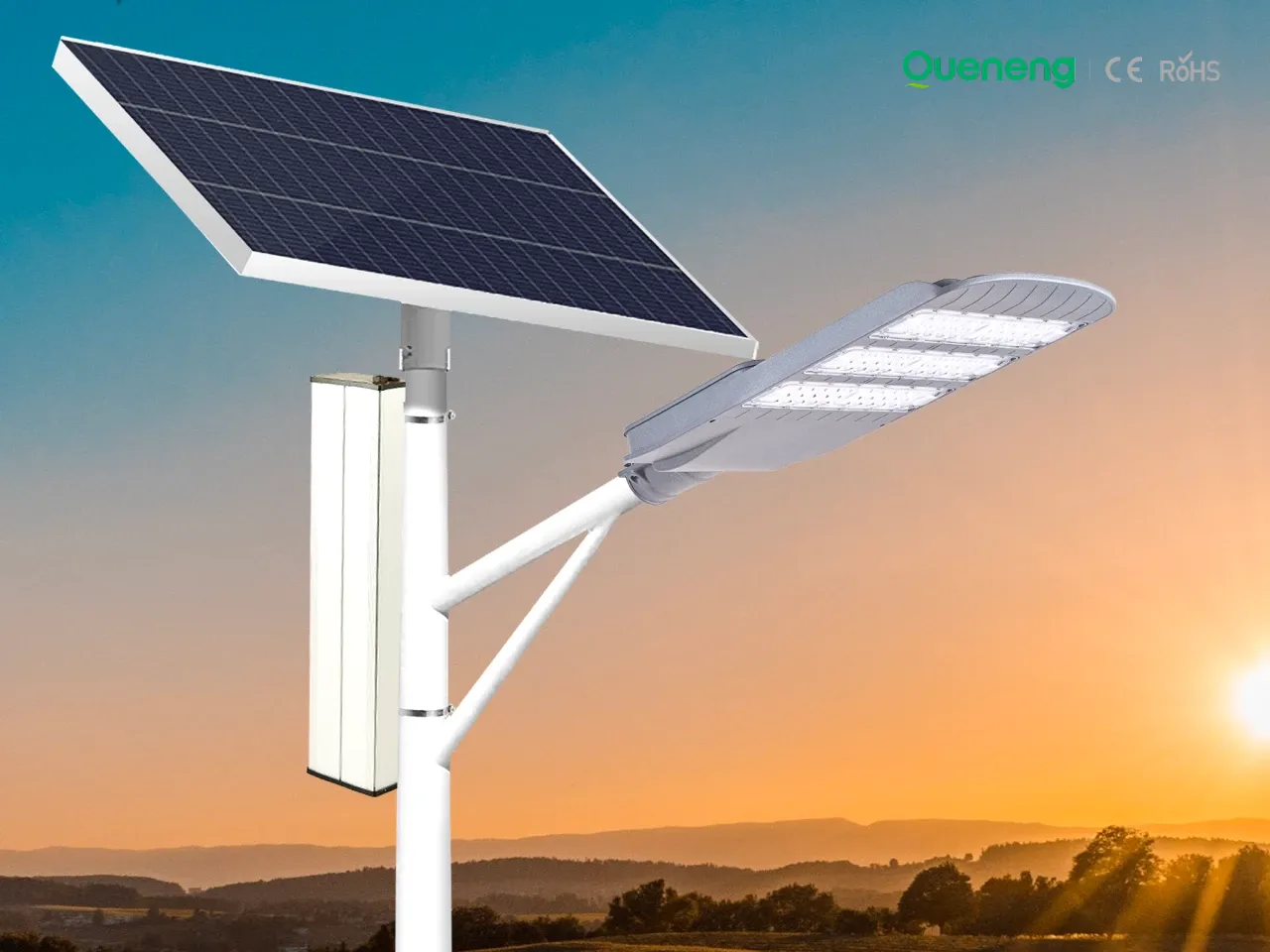

A comprehensive 2026 guide to solar street light pricing. Covers commercial installation costs, LiFePO₄ battery trends, smart IoT features, and a detailed ROI comparison against traditional grid lighting.

A comprehensive 2026 outlook on integrated solar street lights, featuring performance benchmarks like bifacial panels, LiFePO₄ batteries, and Smart City IoT integration for maximum ROI.
FAQ
Solar Street Light Luyi
Can Luyi solar street lights function in areas with cloudy or rainy weather?
Yes, Luyi solar street lights are designed to function efficiently even in cloudy or rainy weather. The high-efficiency solar panels can still capture and store energy in low-light conditions, ensuring that the lights remain operational throughout the night. The system is equipped with a large enough battery to store energy for extended periods, making them reliable even on overcast days.
Battery Performance and Testing
What are the self-discharge rates of different types of batteries?
Transportation and Highways
How do you ensure the lights remain theft-proof in high-risk areas?
We use tamper-resistant hardware, anti-theft bolts, and GPS tracking technology to safeguard the solar lighting systems.
Tourist Attractions and Resorts
How long does it take to install solar lighting at a resort or tourist attraction?
The installation time for solar lighting systems is typically shorter than conventional electrical lighting. Depending on the size and complexity of the site, installation can usually be completed within a few days to a week.
Remote Areas Rural Development
Can the system operate in areas with limited sunlight?
Yes, advanced batteries store sufficient energy to function during cloudy days or extended low-sunlight periods.
Battery fundamentals and basic terms
What is the electrochemistry of lithium-ion batteries?
The main component of the positive electrode of lithium-ion battery is LiCoO2 and the negative electrode is mainly C. When charging,
Anode reaction: LiCoO2 → Li1-xCoO2 + xLi+ + xe-
Negative reaction: C + xLi+ + xe- → CLix
Total battery reaction: LiCoO2 + C → Li1-xCoO2 + CLix
The reverse reaction of the above reaction occurs during discharge.

The Solar Streetlights of Luhao for Municipalities are designed to deliver reliable, energy-efficient, and cost-effective public lighting solutions. Equipped with advanced LED technology, durable lithium batteries, and high-efficiency solar panels, these streetlights provide consistent illumination for roads, parks, residential areas, and government projects.
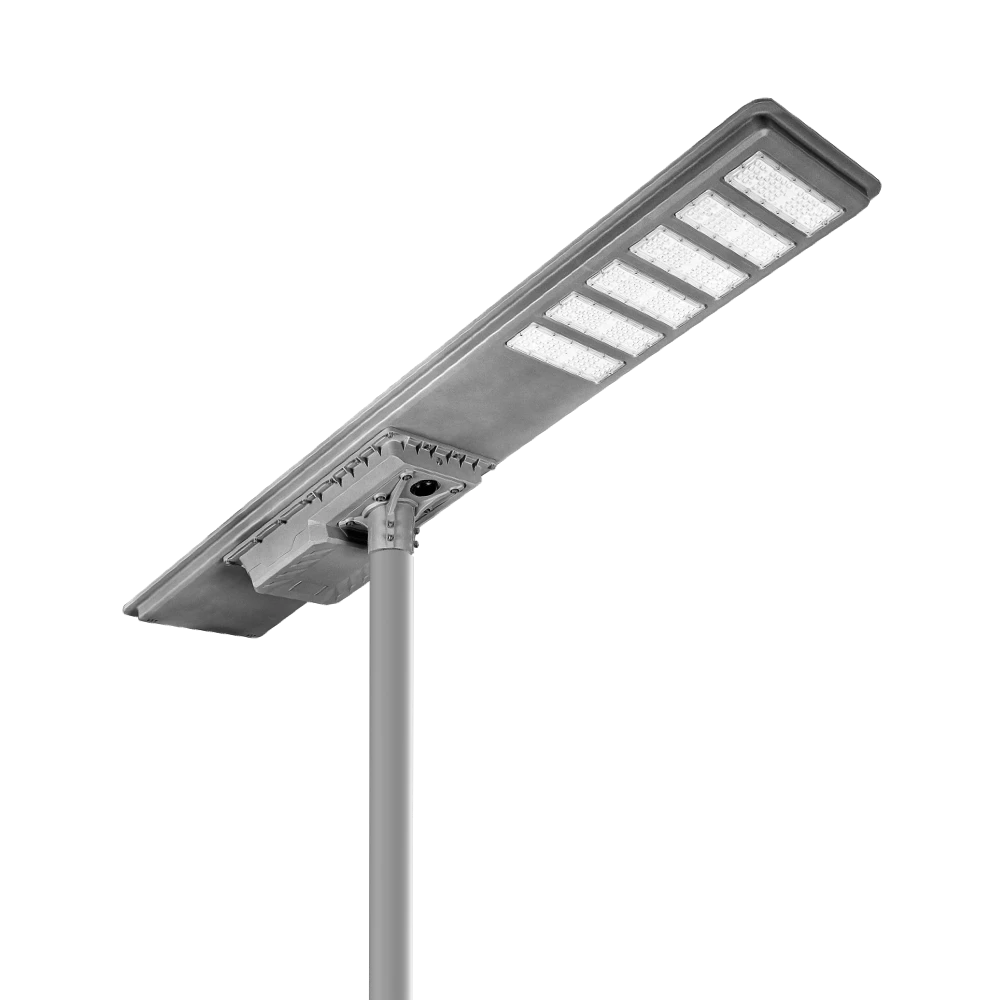
Queneng's Luqiu Innovative Solar Street Light offers energy-saving, durable outdoor lighting. This solar power street light provides a reliable and eco-friendly solution for illuminating your streets and pathways.
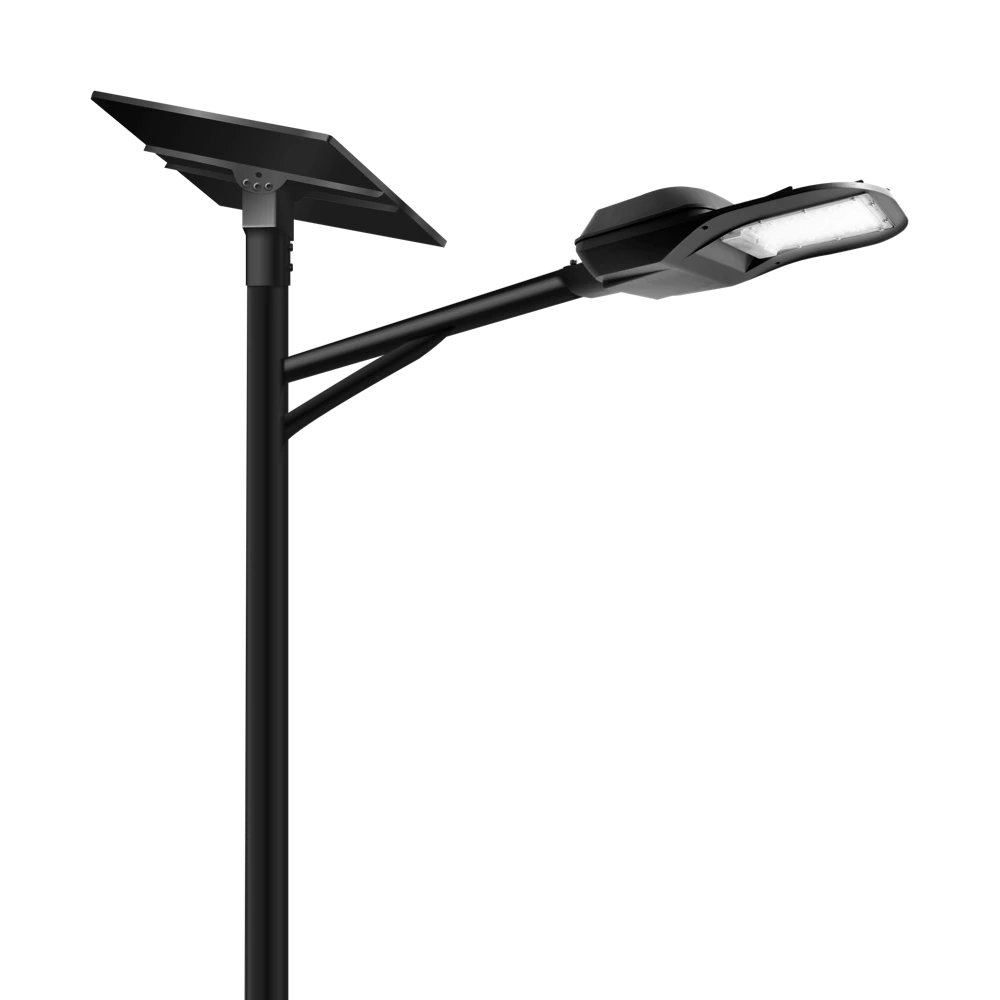

Lubai is an integrated solar street light designed for stable, long‑term outdoor lighting in off‑grid and weak‑grid areas. Combining a high‑efficiency solar panel, LiFePO₄ battery, and intelligent motion sensing, Lubai delivers reliable illumination with low maintenance and fast installation.
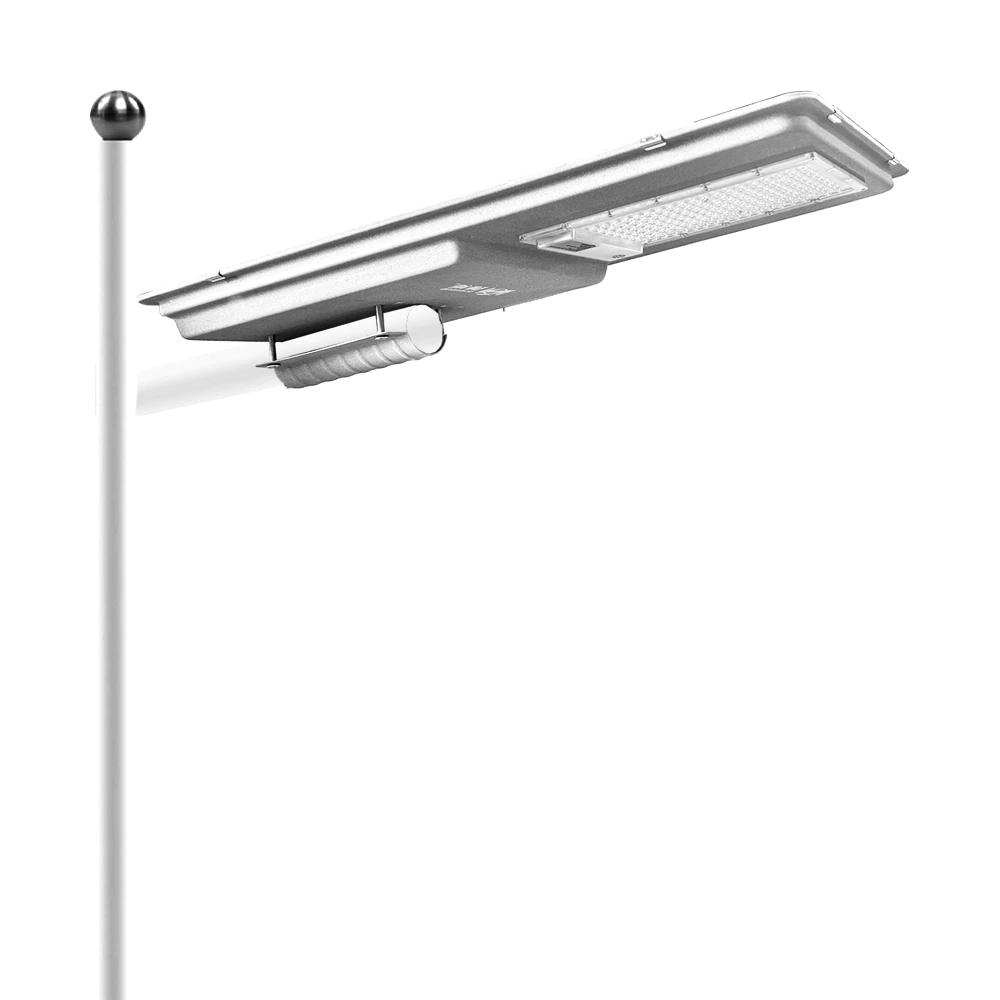
Queneng's Lufa high-efficiency solar LED street lights illuminate urban and commercial spaces brilliantly. These commercial solar LED street lights offer superior energy savings and reliable performance, making them an ideal sustainable lighting solution.
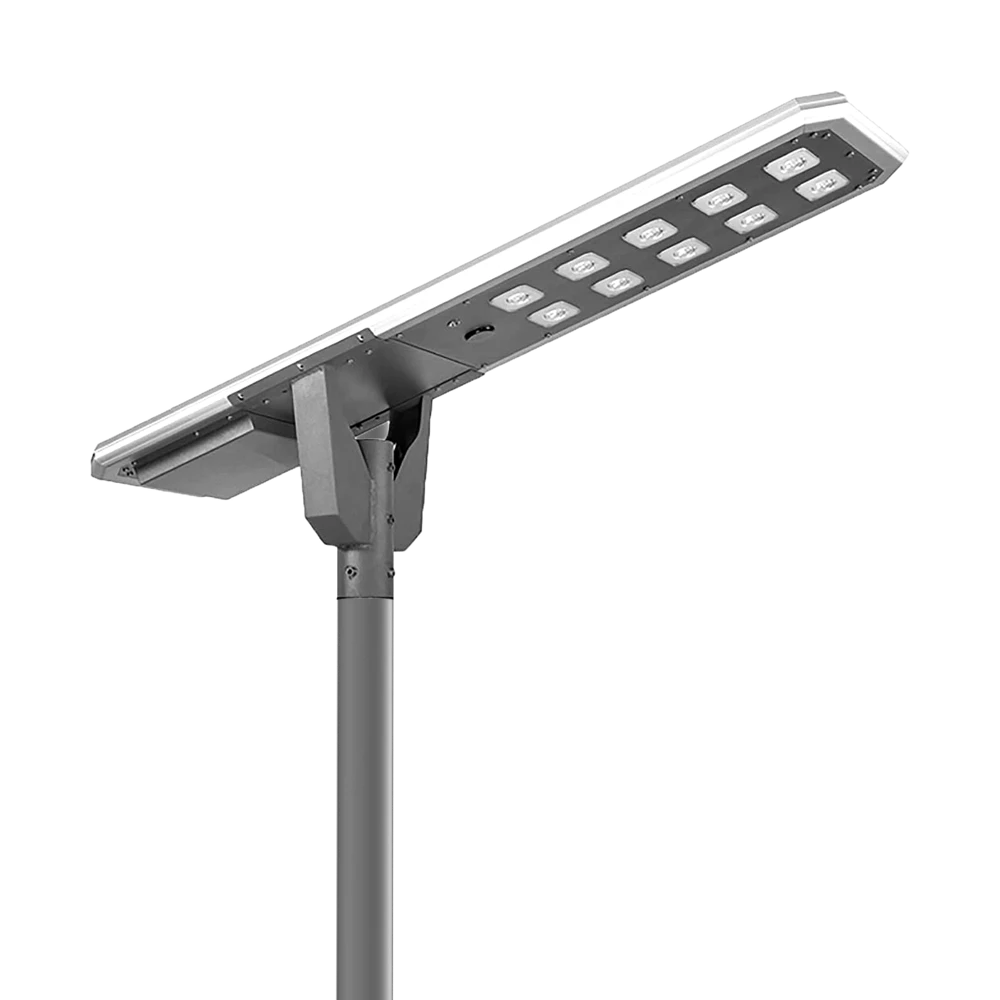
Illuminate your outdoor spaces with the Solar Street Light, a cutting-edge solution combining advanced solar technology and energy-saving LED lighting.
If you would like more information about Queneng solar lighting solutions, please send us a message by filling out the form below. Our professional team will get back to you within 24 hours!
Rest assured that your privacy is important to us, and all information provided will be handled with the utmost confidentiality.
Schedule a Meeting

Book a date and time that is convenient for you and conduct the session in advance.
Have more questions about our products or services?





















